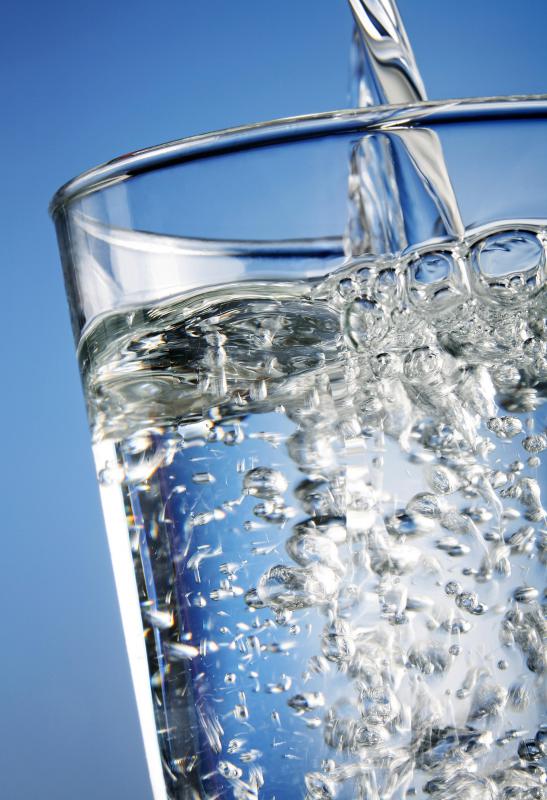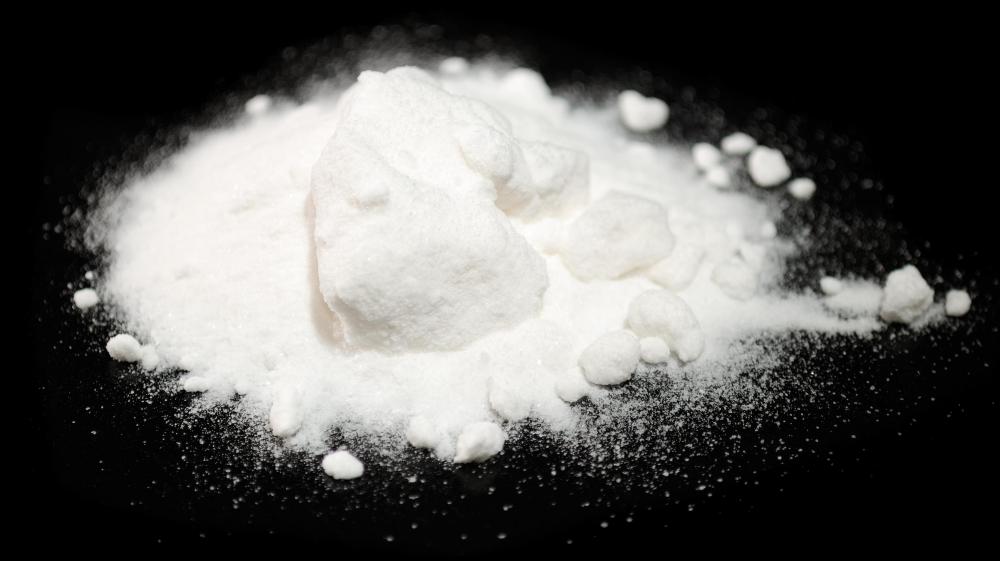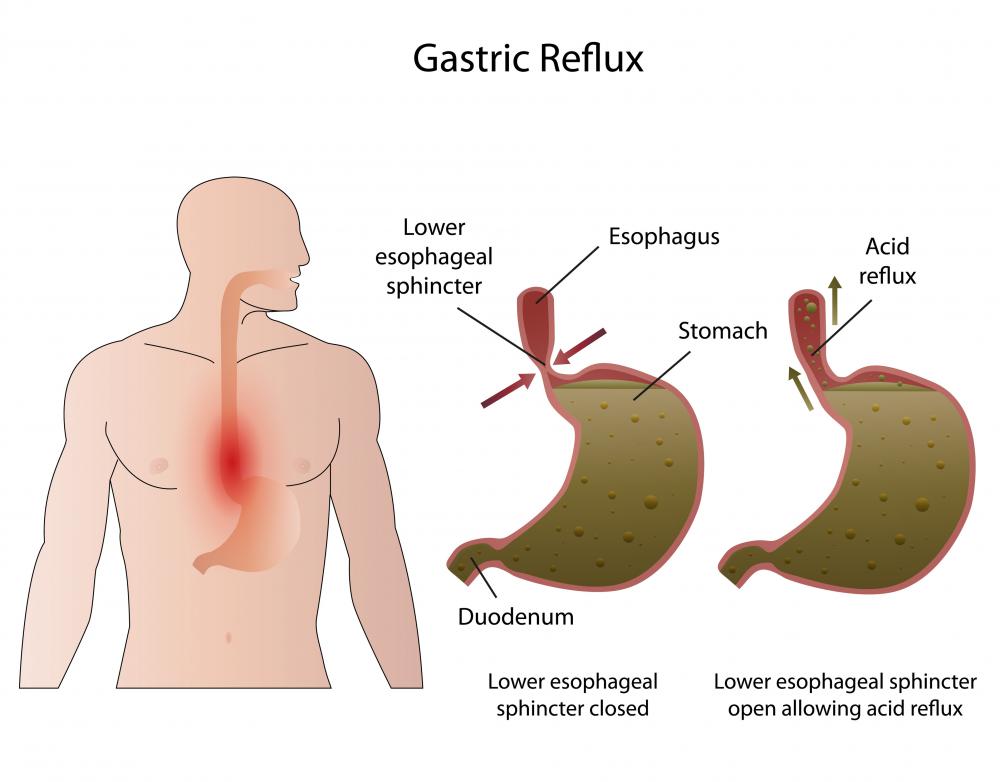At WiseGEEK, we're committed to delivering accurate, trustworthy information. Our expert-authored content is rigorously fact-checked and sourced from credible authorities. Discover how we uphold the highest standards in providing you with reliable knowledge.
How can I Relieve Post-Nasal Drip?
Post-nasal drip can be one of the most unpleasant symptoms of a cold or allergy. It occurs when excess mucus gathers at the back of the nose and throat, and it can contribute to a sore throat, cough, and bad breath. There are many home remedies that can relieve this problem, but if it persists, a visit to a medical professional may be in order. Post-nasal drip can be a symptom of a variety of conditions, so diagnosing the root cause is often essential to determining the proper treatment.
Most home remedies work by loosening, thinning, or drying up the mucus. Drinking a lot of fluids, particularly water, can help flush out the back of the throat. Hot herbal tea or soup adds the benefit of heat to help flush out the mucus. Nasal irrigation can also be helpful, whether with a nasal douche device, a neti pot, or a nasal spray. Use warm water with a bit of salt or baking soda to irrigate your sinuses or to gargle.

Another way to loosen excess mucus at home is to use a humidifier or a facial steamer, or boil a pot of water and breathe in the vapors. Decongestants can help dry out mucus in the back of the nose and throat, but do not use them for more than a few days. Avoid caffeine and other diuretics, alcohol, and creamy or spicy foods, as they can exacerbate the problem.

If post-nasal drip does not go away with home remedies, medical intervention may be necessary. A healthcare professional can perform tests to determine the cause, which may be allergy, bacterial infection, or gastroesophageal reflux. He or she may prescribe antihistamines or steroids for allergies, and chronic bacterial infection may require surgery in extreme cases. Gastroesophageal reflux is a digestive problem and is often treated with antacids and dietary changes.
AS FEATURED ON:
AS FEATURED ON:




















Discussion Comments
You can find info on the web about how sometimes not getting enough potassium in your diet contributes to post nasal drip. Here is something easy, safe, and cheap that you can try which has helped me greatly. I eat one piece of fruit each day which is high in potassium (bananas and kiwis are both good for this) plus I take one to two tablespoons of apple cider vinegar each day (often I add to a salad or other food, sometimes add to a glass of water with honey and drink). For me it only took a couple of days and I began to feel better.
I have severe post-nasal drip due to allergies. I take an antihistamine every day that is supposed to last twenty-four hours, and though it helps keeps me from sneezing and having a runny nose all the time, it doesn't stop my post-nasal drip.
The only thing that ever stopped it was a pill that was a combination antihistamine/decongestant. However, my doctor only prescribed enough of this medicine to last for a month.
The decongestant dried out my sinuses, and though this stopped the drip, it did mean I needed to use a humidifier to keep them lubricated and be able to breathe easier. Also, I believe it sped up my heart rate a little, which was scary. I guess the doctor knew that taking these long-term wouldn't be good for me.
Drinking water isn't a post-nasal drip cure, but it will help temporarily. You have to keep sipping on it throughout the day for it to continue working, though.
It washes the mucus that is already in your throat out, but more will keep coming. I've found that drinking hot lemon echinacea tea cuts through the mucus more and opens up my sinuses. It also soothes my throat if it is sore.
@DylanB – I've heard of dairy allergies causing stomach and intestinal pain and fatigue, but I'm not sure if they could cause post-nasal drip. However, even if you don't have an allergy to dairy, your body still might be producing more mucus because of it.
I've always heard that milk can make post-nasal drip during a cold worse, so I don't see why it couldn't make your body manufacture more of it all the time. Since you are eating several types of dairy a day, this might be what's happening.
Try going a week without dairy products and see if your post-nasal drip clears up. If so, you will know what to do, but if not, you can go on eating dairy.
Could chronic post-nasal drip be due to a dairy allergy? I do eat a lot of dairy products, like yogurt and ice cream, and I have milk with my cereal every morning. I don't have any allergies that I'm aware of, but I'm wondering if what I'm eating might be the cause.
I'm currently seeing the sinus doctor for my sinusitis/nasal drip/bad breath and it is truly amazing. I've been doing the treatment four days now and see a dramatic difference in my sense of taste and smell.
I also mix the oils with warm water and rinse/gargle with it. Whew! Very powerful but it works my bad breath has improved 75 percent and by the time my treatment is up I know it will be completely gone. You all definitely should give it a try; it's the only thing that has worked for me.
i found that it was worst when i was lying down. when i would sit up the coughing stopped almost instantly.
i found the steam inhalation and pressing the soft palate (small tongue like thing in throat) with salt as well as base of tongue rubbing helps a lot. --bhanudas
I have just figured out that I have post-nasal drip. My biggest question is (Is it like a fever like it goes away or does post-nasal drip stay with you forever?
Why would post nasal drip and excessive saliva occur when walking/moving, showering and brushing teeth? The walking one is really strange, plus I can control the dripping somewhat if I eat while walking. Any thoughts?
I've searching for a remedy for post nasal drip and all I find are remedies for halitosis (bad breath) but nothing about how to stop post nasal drip.
Definitely don't use the nasal decongestant sprays for the couple of days the directions talk about! If you do the spray will actually make the problem worse and if you keep using it, the spray becomes the cause!
Post your comments